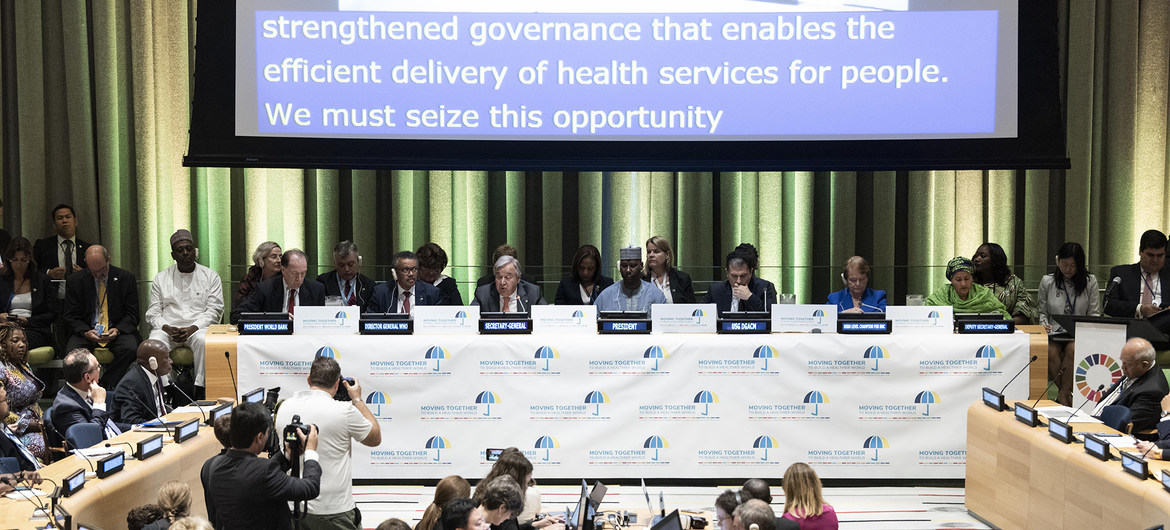
UN wants universal health coverage for all by 2030

The United Nations on Tuesday took steps to provide an additional one billion people by 2023 with quality essential health services and quality, safe, effective, affordable and essential medicines, vaccines, diagnostics and health technologies, with a further objective to cover all people by 2030.
The UN Political Declaration on universal health coverage (UHC), commits countries to advance towards full coverage for their citizens in four major areas around primary care.
World leaders made the public commitment during the meeting at the beginning of the high-level week of the UN General Assembly, themed “Universal Health Coverage: Moving Together to Build a Healthier World”.
UN Secretary-General Antonio Guterres called UHC declaration “the most comprehensive agreement ever reached on global health – a vision for universal health coverage by 2030”.
He maintained that this “significant achievement” will drive progress over the next decade on tackling communicable diseases, including HIV/AIDS, tuberculosis and malaria while addressing non-communicable disease and the growing threat of antimicrobial resistance through robust and resilient primary healthcare systems.
“The political declaration also states the need to ensure universal access to sexual and reproductive health-care services and reproductive rights”, he continued. “It is essential to protect the wellbeing and dignity of women and girls”.
General Assembly President Tijjani Muhammad-Bande opened the meeting by underscoring that access to critical health services “must be a universal right and not a privilege”.
“We must ensure that nations around the world can benefit from each other in medical training, provision of medical infrastructure, among others if we are to achieve our agreed SDGs (Sustainable Development Goals)”, he stated.
Mr. Muhammad-Bande said the objective of UHC is to “strengthen our health systems” to guarantee a “healthier life for everyone” by ensuring that people have access to “affordable, preventive, curative and rehabilitative health services”.
According to Mr. Bande, to obtain quality health services, member states must support each other, including with “integrated, efficient, safe and people-centered care” and continue to invest in research “to better equip us in preventing diseases, among other benefits”.
The declaration comes the day after world health organizations flagged the need to double health coverage between now and 2030 or leave up to five billion people unable to access sufficient services.







